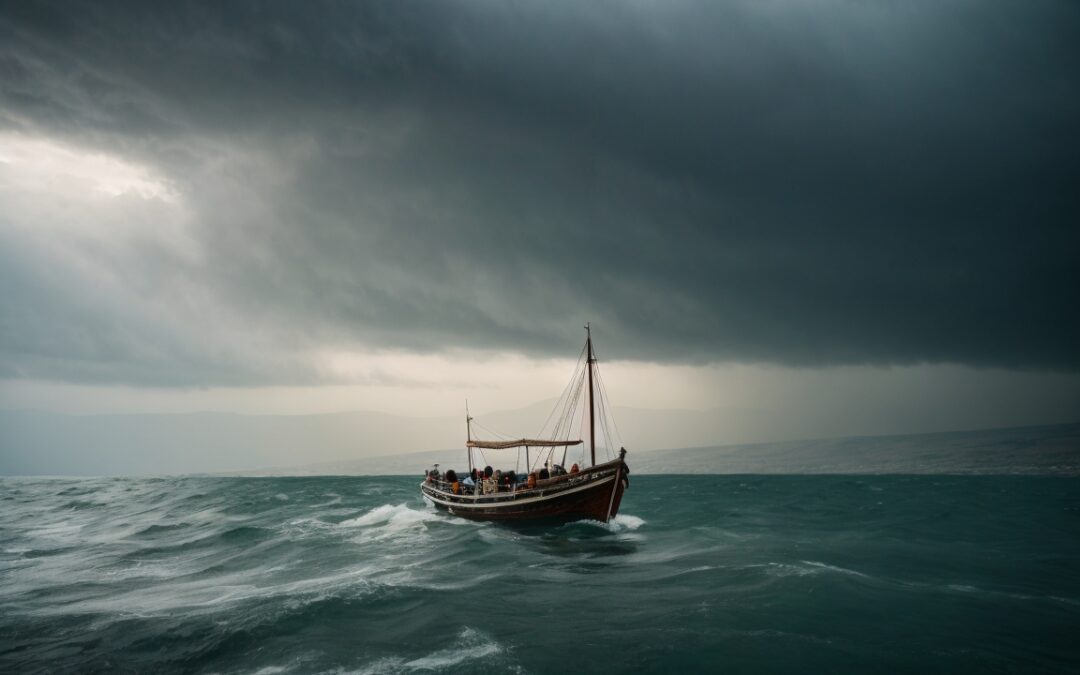“But the men marveled, saying, What manner of man is this,
that even the winds and the sea obey him!”
(Matt. 8:27)
The psalmist proclaims that “the earth is the Lord’s, and everything in it,” (Ps. 24:1). Not only does he own it all by right of creation, he also controls it all by right of his power and purpose. It is his to use and dispose of as he wills. One aspect of creation that Scripture speaks to quite often in respect to its Maker is that of the wind. More particularly, Psalm 147:18 references both his ownership and control over it when he says, “He causes his wind to blow.”
The wind is one of those phenomenal mysteries of creation in that while invisible, it is one of the most powerful, destructive forces naturally occurring in our world. It’s strength can be as benign and refreshing as a gentle breeze or as fierce and devastating as a tornado. It can be so still it’s indetectable in the eye of a hurricane and so powerful it levels buildings and uproots trees as that same hurricane expands outward.
Many passages throughout Scripture use poetic imagery to show the relationship between God and this powerful force of nature to demonstrate the glory and majesty of its Creator by comparison. For example, Psalm 104:3 says God “walks on the wings of the wind.” He is said to “ride on the wings of the wind,” (2 Sam. 22:11), and to “fly on the wings of the wind,” (Ps. 18:10). Proverbs 30:4 states, “God holds the winds in his fists,” and Psalm 135:7 tells us that he brings the winds out of his treasuries at will. In other words, he has every stormy blast locked up in his treasury, and it cannot stir until he chooses to release it.
Job 28:25 says God establishes a weight for the wind. That is, he measures it in a just proportion so not even the least particle is spent beyond what serves his purpose, and he charts its determined positions, so that it moves this way or that way as he wills.
The disciples were astounded when they witnessed the immediate obedience of the wind and waves to the Master’s command to “be still.” It was as if they were saying, “What manner of man is this, for God alone directs the winds, and so how can a man do this, except he be God?”
Christ controlled the natural winds when they beat against the boat, causing them to become calm. And then he makes use of this natural phenomenon to illustrate the work of the Spirit when he says, “The wind blows where it wills, and you hear the sound thereof, but cannot tell from where it comes nor where it goes. So is everyone that is born of the Spirit,” (John 3:8). And after his ascension, when he sends the Holy Spirit to empower his apostles for ministry (Acts 2:2), the ensuing event is described as the sound of a “rushing mighty wind which filled all the house where they were sitting, and they were filled with the Holy Ghost.”
In these many examples we can well understand why Jeremiah Burroughs said, “In this way you see what use the Scripture makes of the winds, to set out the glory of God by.”[1] As the apex of his creation, so ought we to acknowledge and glorify our Creator for his great and mighty works, particularly his glory and majesty as declared by the wind!
Contemplations:
- Lord, you are to be praised even in the rise of the wind. The wind is one of your great and mysterious works, for we cannot see it, and yet it is very real and powerful. It is truly a wonder, for one minute it can be utterly calm, and the next minute boisterous.
- Lord Jesus, you say the winds blow where they wish, no man knows “whence they come, nor whither they go.” We see the winds arise many times, even when there are no clouds to indicate stormy conditions. All we know is the breeze came and went. But you direct them all.
- Even in the wind, Lord, you are to be praised for your great power. How dreadful is your infinite power, so much so that nothing can be added to it. Oh how glorious and majestic is your mighty power!
- Lord, one of your greatest works was when you quieted the wind with mere words. When you rebuked the winds and commanded them to be still (Mark 4:39), they immediately ceased, and there was a great calm. Your word says in Isaiah 27:8, “He stays the rough wind.” You are to be praised, for you rule the raging sea. When its waves rise high, you can still them. Psalm 89:8-9 states, “O Lord God of Hosts, who is a strong Lord like unto you or to your faithfulness round about you. You rule the raging of the sea; when the waves thereof arise you still them.” Likewise, Lord, when waves seem like they are overtaking me, I know you can still them, for you are omnipotent.
Further References for Matthew 8:27:
Mark 1:27; Matthew 15:31; Luke 5:17; Matthew 28:18.
[1] Jeremiah Burroughs, The Sea-Mans Direction in Time of Storm (London: T. Paine and M. Simmons, 1640), 19.


